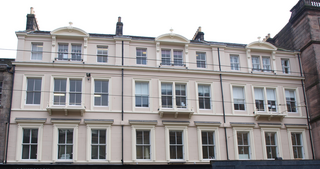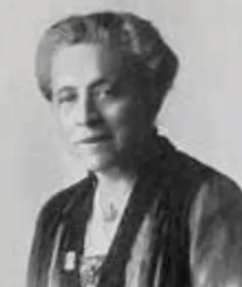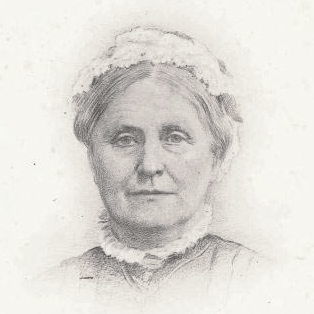Related Research Articles
A parent–teacher association/organization (PTA/PTO), parent-teacher-friend association (PTFA), or parent–teacher–student association (PTSA) is a formal organization composed of parents, teachers and staff that is intended to facilitate parental participation in a school.

Dame Henrietta Octavia Weston Barnett, DBE was an English social reformer, educationist, and author. She and her husband, Samuel Augustus Barnett, founded the first "University Settlement" at Toynbee Hall in 1884. They also worked to establish the model Hampstead Garden Suburb in the early 20th century.
Emily Anne Eliza Shirreff was a pioneer in the movement for the higher education of women and the development of the Froebelian principles in England.

Charlotte Maria Shaw Mason was a British educator and reformer in England at the turn of the twentieth century. She proposed to base the education of children upon a wide and liberal curriculum. She worked for five years under Fanny Trevor at Bishop Otter College.

The Edinburgh Association for the University Education of Women (EAUEW), originally known as the Edinburgh Ladies' Educational Association (ELEA), campaigned for higher education for women from 1867 until 1892 when Scottish universities started to admit female students. For nearly a quarter of a century it arranged its own classes for women with lecturers from Edinburgh University, and it was connected with a wider campaign across Europe to open universities to women students.

Mary Sumner was the founder of the Mothers' Union, a worldwide Anglican women's organisation. She is commemorated in a number of provinces of the Anglican Communion on 9 August.
Froebel College is one of the four constituent colleges of the University of Roehampton.
Henrietta Cornelia Mears was a Christian educator, evangelist, and author who had a significant impact on evangelical Christianity in the 20th century and one of the founders of the National Sunday School Association Best known as the innovative and dynamic Director of Christian Education at First Presbyterian Church of Hollywood, California and in charge of the college and young adult people in the mid-1900s, she built a dedicated, enthusiastic staff, trained and mentored her teachers and implemented a graded, age-appropriate curriculum from “cradle roll” to adults. Henrietta lectured and wrote passionately about Sunday school's power to teach others the Bible. Within two years, Sunday School attendance at Hollywood “Pres” was averaging more than 4,200 per week. She served in leading the Sunday School program from 400 to 6500. Henrietta Mears taught the college age program herself. Henrietta Mears was one of the most influential Christian leaders of the 20th Century. She founded Gospel Light, a publishing company for many of her training materials, Forest Home, a Christian conference center nestled in Forest Falls, California, and "Gospel Literature Internationals (GLINT)"., and profoundly impacted the ministries of Bill Bright and Vonette Zachary Bright, Jim Rayburn and Billy Graham and Louis Evans, Jr. who was the organizing pastor of Bel Air Church and led the congregation of the National Presbyterian Church, Washington, D.C., with her emphasis on Scripture and a clear Gospel message for young people. Mears is believed by many theologians to have most directly shaped Bill Bright’s Four Spiritual Laws, which defined modern evangelism in the 20th century.
Catherine Levison is the author of four books. She is also a public speaker to parenting, homeschooling and educational audiences throughout the United States and Canada. She is also a columnist for The Link magazine. Levison lives with her family in the Puget Sound region of Washington state.

The Centre for International Education and Research (CIER) evolved in the 1950s, at the University of Birmingham UK, in the context of the involvement of British academics in the new international educational role of the United Nations.
The Home and Colonial School Society was a school founded in 1836 by Elizabeth Mayo, Charles Mayo, James Pierrepont Greaves and John S. Reynolds for the education of children and the training of teachers especially by then novel methods proposed by Pestalozzi. It was located on Gray's Inn Road in London.

Sophia "Zoe" Benjamin was a pioneer of early childhood education in Australia.
Clara Grace James was a British trade unionist.

Helen Gladstone was a British educationist, vice-principal at Newnham College in Cambridge, and co-founder of the Women's University Settlement.

Georgiana Margaret Solomon was a British educator and campaigner, involved with a wide range of causes in Britain and South Africa. She and her only surviving daughter, Daisy Solomon, were suffragettes; as members of the Women's Social and Political Union, they were imprisoned during the campaign for women's suffrage for breaking the windows of Black Rod's office.

Henrietta "Netta" Franklin, CBE born Henrietta Montagu was a British educationist and suffragist. She championed the Parents' National Educational Union and the ideas of Charlotte Mason.

Henrietta White, was the principal of Alexandra College, Dublin, a horticulturist, and social activist.
Jean Crawford Cochrane was an Irish educator and activist for women's education.

Sarah Frances "Fanny" Trevor was a British educator who was the first college principal of Bishop Otter College after it was relaunched as a teacher training college for women in the 1870s. This college became the University of Chichester.

Freda Howitt Gwilliam (1907–1987) was a British educationist concerned about the education of girls and women in the British Empire. She was referred to as the "Great Aunt of British Colonial Education".
References
- ↑ Christina de Bellaigue, "Charlotte Mason, Home Education and the Parents’ National Educational Union in the Late Nineteenth Century", Oxford Review of Education, 41/4 (2015), pp. 501-517.
- ↑ Margaret A. Coombs, Charlotte Mason: Hidden Heritage and Educational Influence (Lutterworth Press, 2015), pp. 152-153.
- ↑ Margaret A. Coombs (24 September 2015). Charlotte Mason: Hidden Heritage and Educational Influence. The Lutterworth Press. p. 156. ISBN 978-0-7188-9402-3.
- ↑ "Editorial". The Parents' Review. Vol. 1, no. 1. Parents' National Educational Union. 1890. Retrieved 3 August 2023.
- ↑ Oldfield, Sybil (2004). "Franklin [née Montagu], Henrietta [Netta]" . Oxford Dictionary of National Biography. Vol. 20. Oxford: Oxford University Press. p. 784. doi:10.1093/ref:odnb/53683 . Retrieved 3 August 2023.
- 1 2 Power, Marlene. "Guides: Charlotte Mason Digital Collection (CMDC): Charlotte Mason Timeline". libguides.redeemer.ca. Retrieved 14 December 2022.